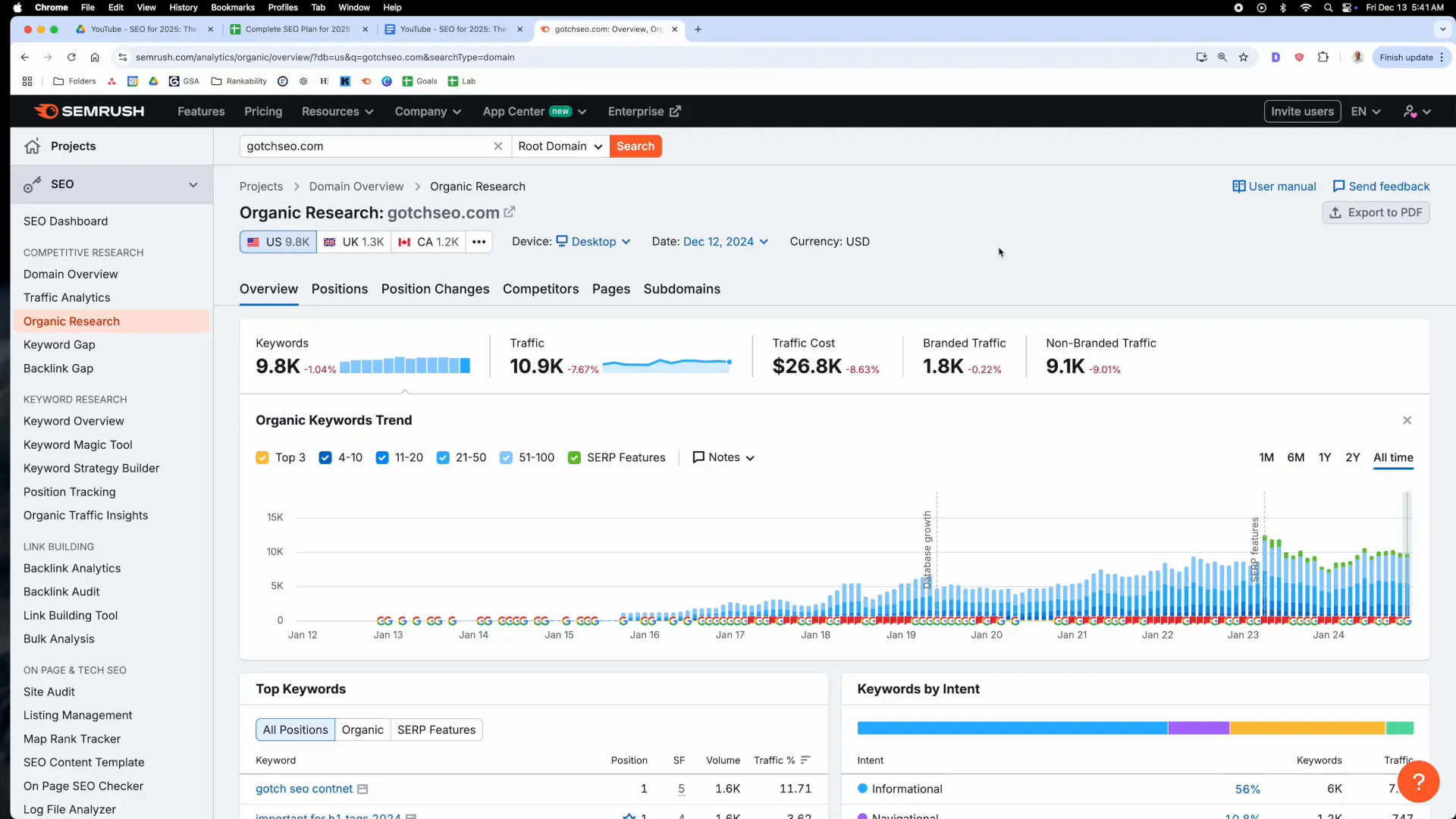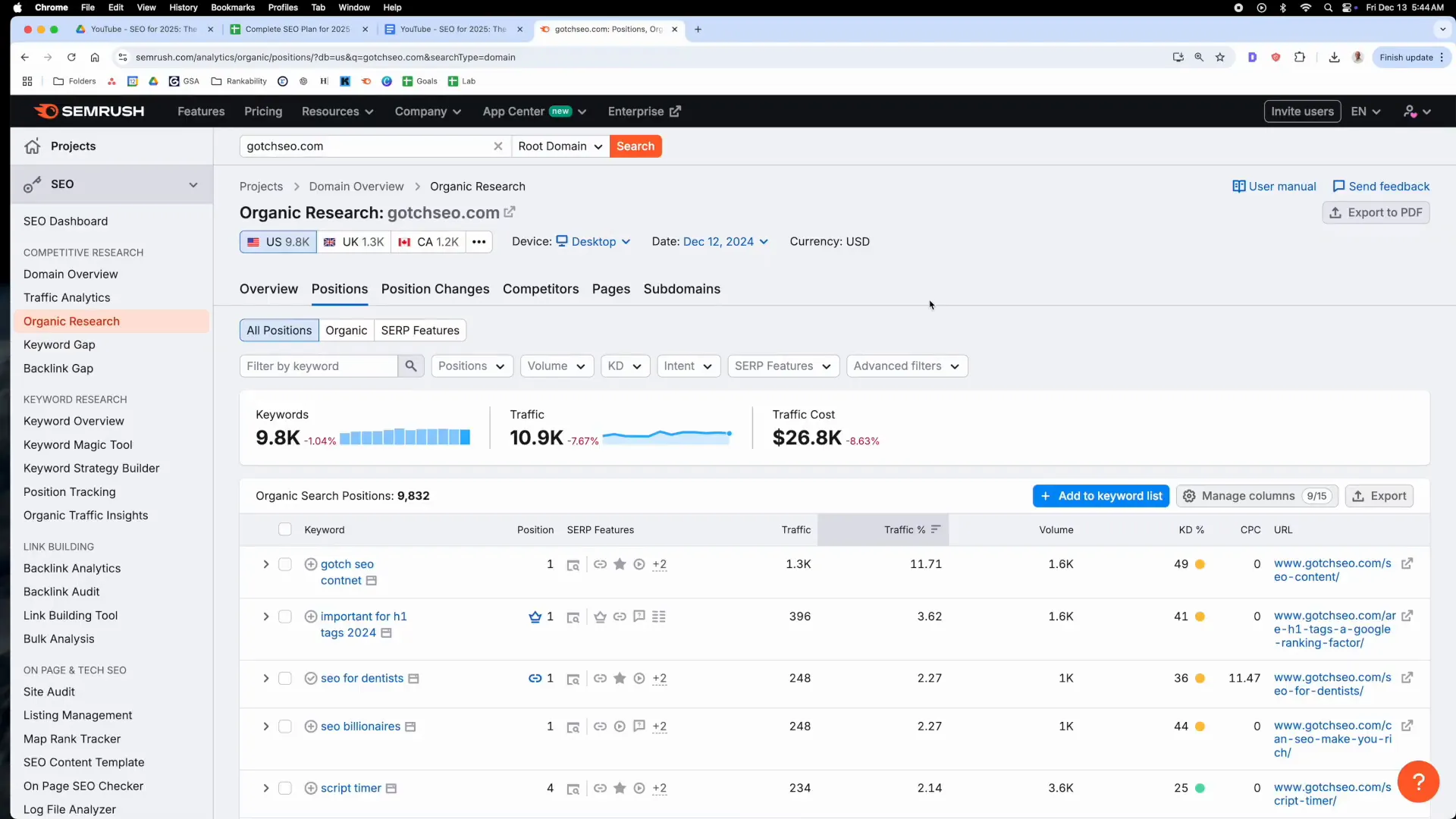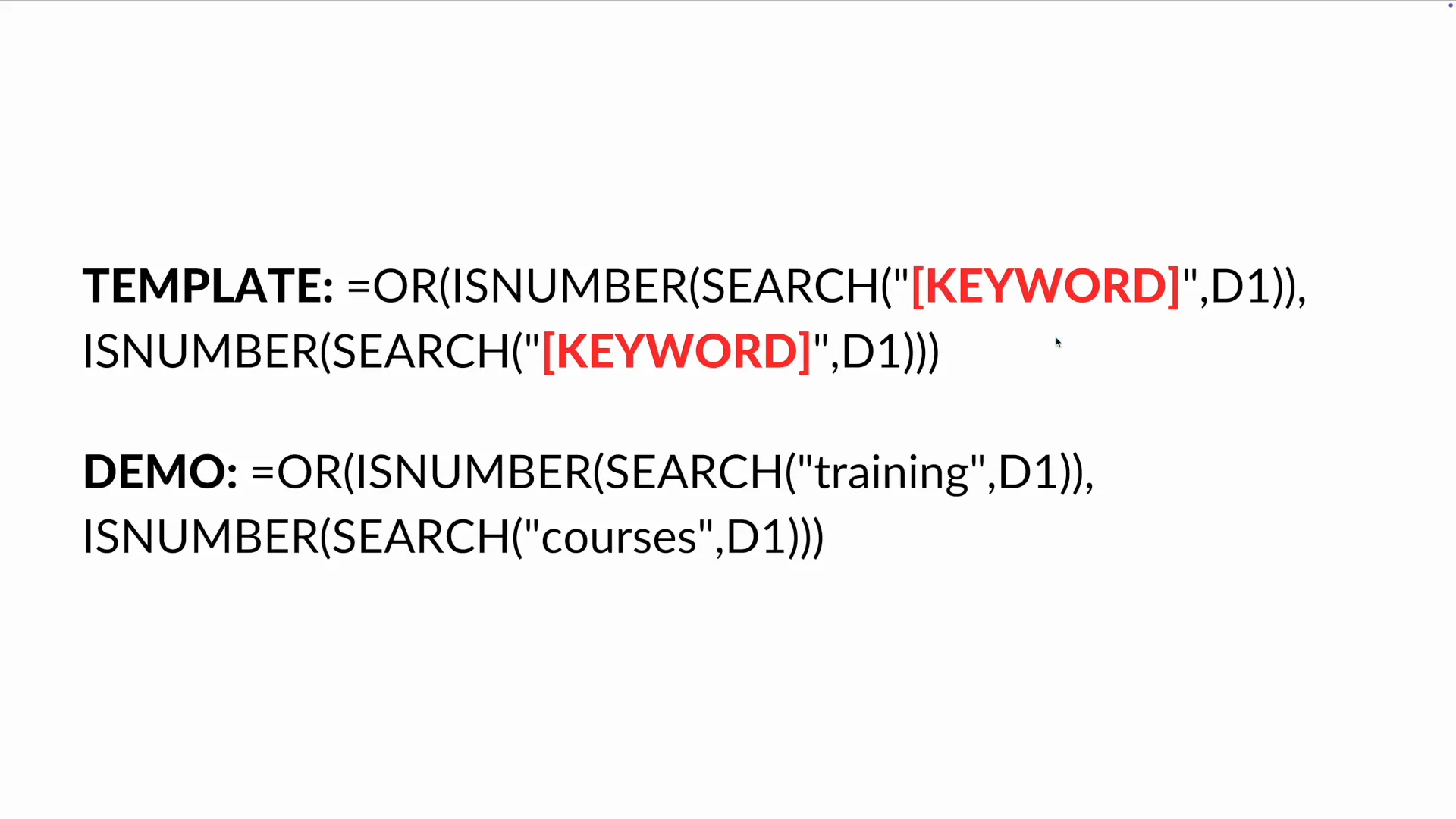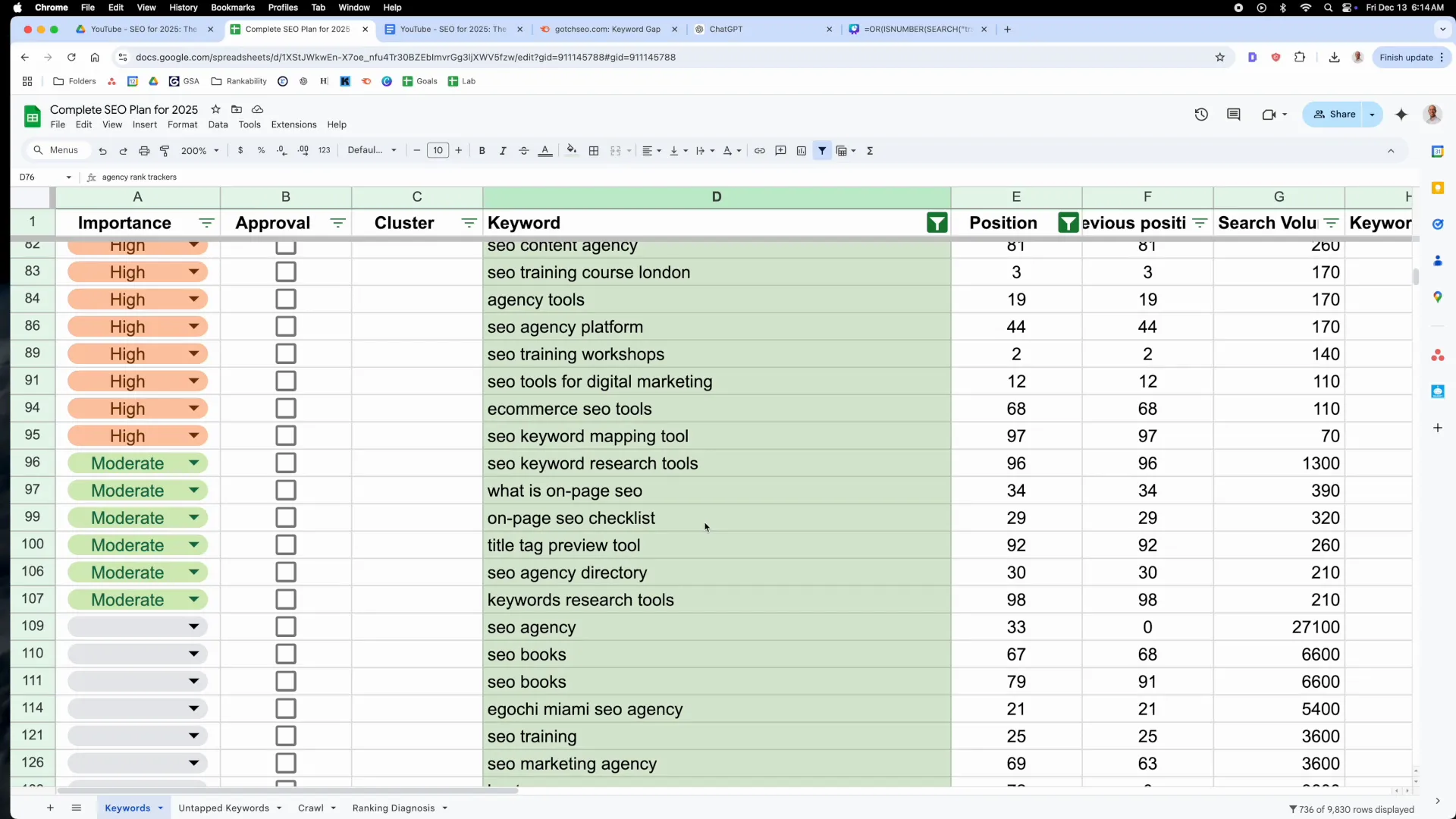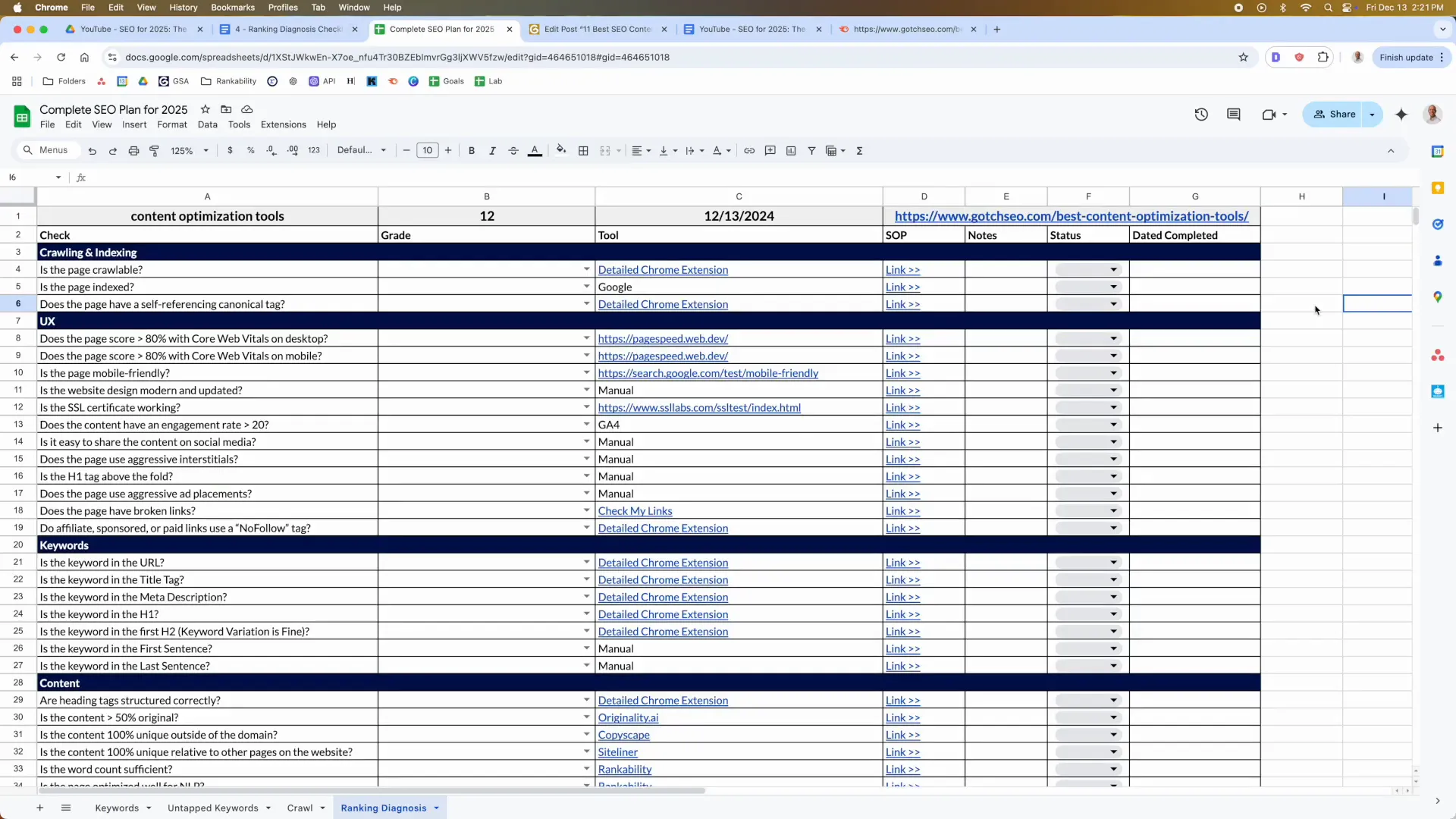Creating an effective SEO plan for 2025 is crucial for anyone looking to enhance their online visibility. In this post, I’ll walk you through the steps needed to develop a comprehensive SEO strategy without the need to hire an expensive SEO consultant. Let’s dive in!
Table of Contents
- 1. Download Your Existing Keyword Profile
- 2. Conduct a Keyword Gap Analysis
- 3. Filter Keywords Based on Relevance
- 4. Identify Supporting Keywords
- 5. Run a Ranking Diagnosis
- Frequently Asked Questions
1. Download Your Existing Keyword Profile
The first step in developing your SEO strategy is to gather your existing keyword data. Use tools like Semrush or Ahrefs to access your organic research data. Export all of your existing keywords into a Google Sheet. For those with large keyword profiles, consider filtering your data for better manageability.
2. Conduct a Keyword Gap Analysis
Next, perform a keyword gap analysis to identify keywords your competitors are ranking for that you are not. This will help you find opportunities to improve your authority on specific topics. Enter the top competitors in your niche into the keyword gap tool and compare their rankings. Focus on the keywords where they rank in the top ten, but you do not.
3. Filter Keywords Based on Relevance
After gathering your keywords, filter them based on relevance to your products or services. For instance, if your business focuses on SEO training, make sure to prioritize keywords that align with this theme. You can use conditional formatting in your Google Sheet to help identify these relevant keywords quickly.
4. Identify Supporting Keywords
Alongside your commercial keywords, identify supporting keywords that may not drive revenue directly but are still valuable for boosting your content’s relevance. These supporting keywords can help build topic authority around your main keywords, improving your overall SEO performance.
5. Run a Ranking Diagnosis
Finally, conduct a ranking diagnosis to identify what is holding your pages back from achieving higher rankings. Use a checklist to evaluate the core variables, such as backlink strength and page authority. If your pages are not ranking well, this diagnosis will help highlight areas for improvement, such as acquiring more backlinks or optimizing content.
Frequently Asked Questions
What tools should I use for keyword research?
Popular tools include Semrush, Ahrefs, and Moz. These tools will help you analyze keyword performance and competition.
How often should I update my SEO strategy?
It’s advisable to review your SEO strategy at least quarterly. This allows you to adapt to changes in search engine algorithms and market trends.
What are supporting keywords?
Supporting keywords are those that may not directly drive revenue but are relevant to your main keywords. They help improve your site’s overall authority and relevance in search engines.
For more insights on SEO strategies, feel free to check out Digital Reach SEO Services and resources.
